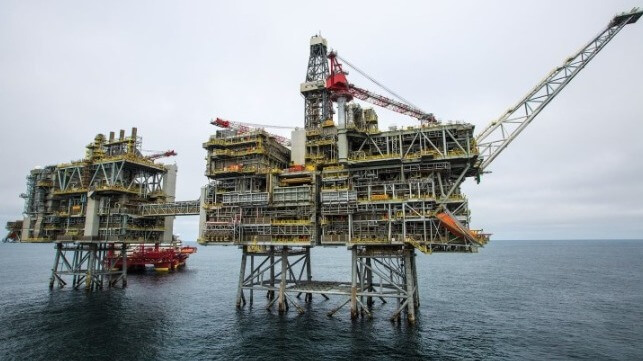UK Union Coordinates Strikes at BP and Repsol Offshore Energy Sites

The UK’s offshore energy sector has become an increasing target by the British union organization Unite seeking to recapture previous concessions and win wage improvements as the oil and gas sector rebounds. The union is delaying a planned strike for this week in order to coordinate it with a second action for a broader effort to address its demands against the offshore sector.
Unite is planning strikes against different parts of offshore engineering and contracting firm Petrofac including the assets of Repsol and separate sites operated for BP. This comes after the union had what it called a “massive win” a year ago for workers on the Canadian Natural Resources contract also with offshore contractor Petrofac.
Each of the grievances has differences but they focus either on pay or work rule concessions made during the downturn in the sector. With the rebound in the oil economy and the companies posting large profits, Unite argues it is the time for the workers to receive pay increases keeping up with inflation and making up for the past as well as a return to work rules on elements such as shift rotations.
A planned job action scheduled for November 30 and December 1 at the Petrofac Repsol location is being delayed by the union. Last week they announced it would be moved to December 8 and 9 to coincide with a separate action at offshore Repsol BP locations.
“Petrofac continue to underpay and attack the terms and conditions of my members resulting in dispute after dispute with them. When will this company’s management understand that our members will not take these actions lying down and are prepared to fight every unjust decision and every unfair pay offer,” said Unite general secretary Sharon Graham.
According to Unite, Petrofac cut benefits for workers in 2020 citing the pressures created by the downturn in oil and gas prices. At the time, the union contends Petrofac promised to review the cuts in the future when oil rebounded. With oil having moved from $18 to $98 a barrel, Unite said the time has come for restoring these cuts.
The dispute with the workers for the Repsol sites flared up in mid-November with a two-day stoppage and an ongoing refusal for overtime. Unite demanded that a 10 percent wage cut be reversed, with pay increases reflecting inflationary costs, and that the company fulfills its obligation to review the other payments for 146 workers covered by this contract. The planned stoppage the union says will “cause significant disruption to the maintenance and safe running of the platforms/terminal.”
By delaying the action planned against the Repsol assets, Unite will time it to coincide with the second action which will take place on BP’s Andrew, Clair, Clair Ridge, ETAP, and Glen Lyon installations. Unite reports that employees at these sites agreed starting in 2015 to charge the shift rotations accepting three weeks on-three off working pattern during the downturn in oil prices. The union says this led to an overall increase in average weekly working hours which fell outside the maximum defined in the Working Time Directive, which Unite members were then forced to waive to keep their jobs.
“With a return to a healthy oil economy these onerous rota conditions have remained in place to the detriment of the workforce; their home lives, family, and friends. This was even more acutely felt during the Covid lockdown period with additional time required for testing, quarantine, and travel,” says Graham.
Last year, Petrofac agreed to a 17 percent wage increase for workers on the Canadian National contract. They also reversed a one-week giveback where workers had worked an extra week at no extra pay. Like the issues at dispute for the Repsol and BP contracts, the issues in the CN contract had also been the result of negotiations during the downturn in the industry.
The actions against the oil and gas sector are planned the industry is under pressure to keep production and output high to make up for the losses of Russian energy supplies.
